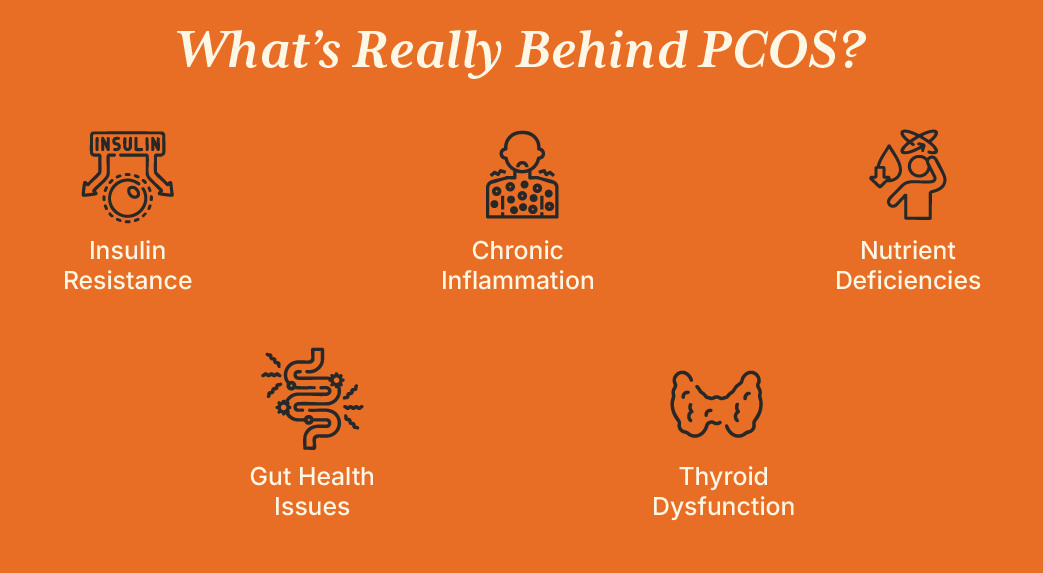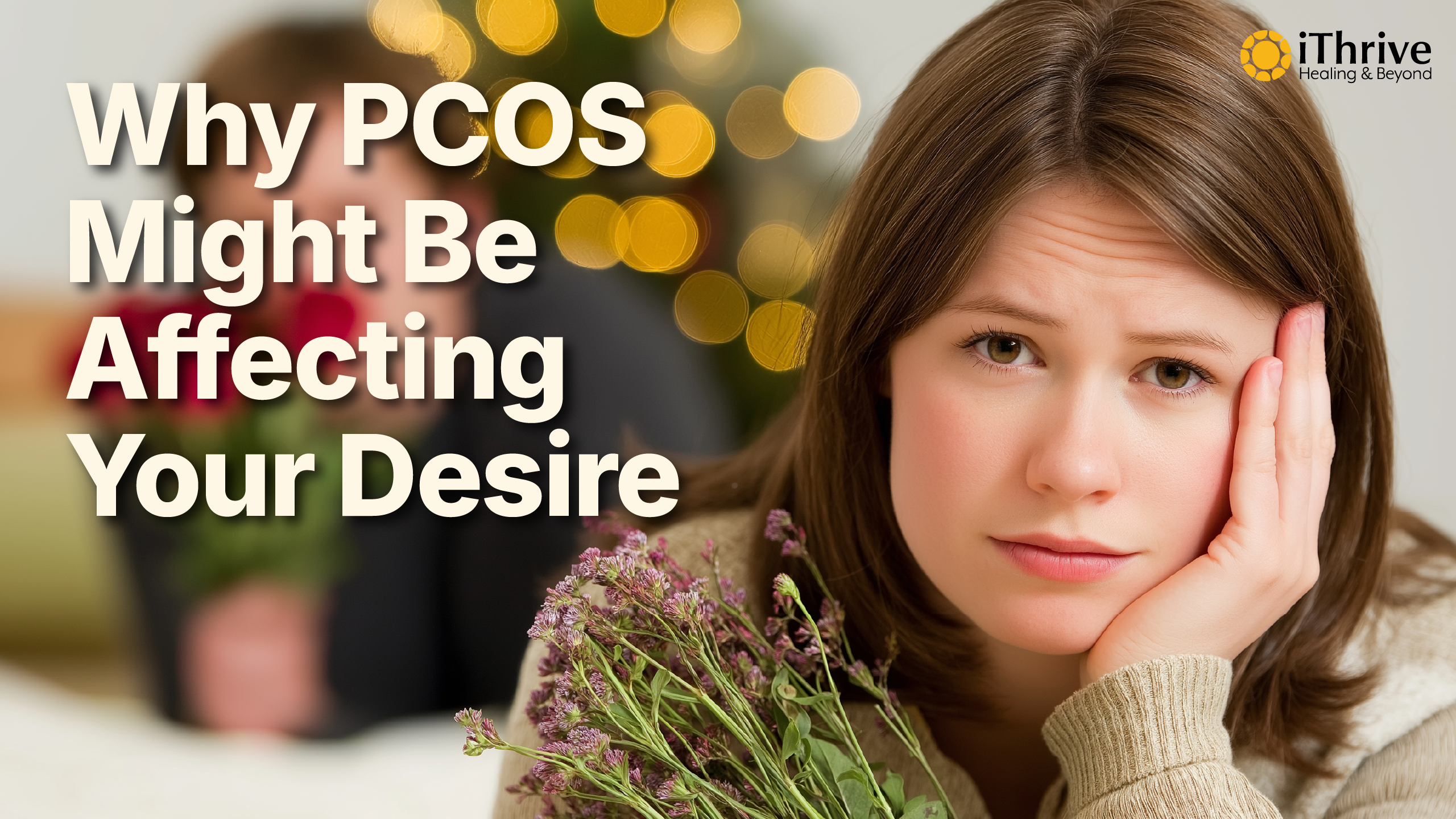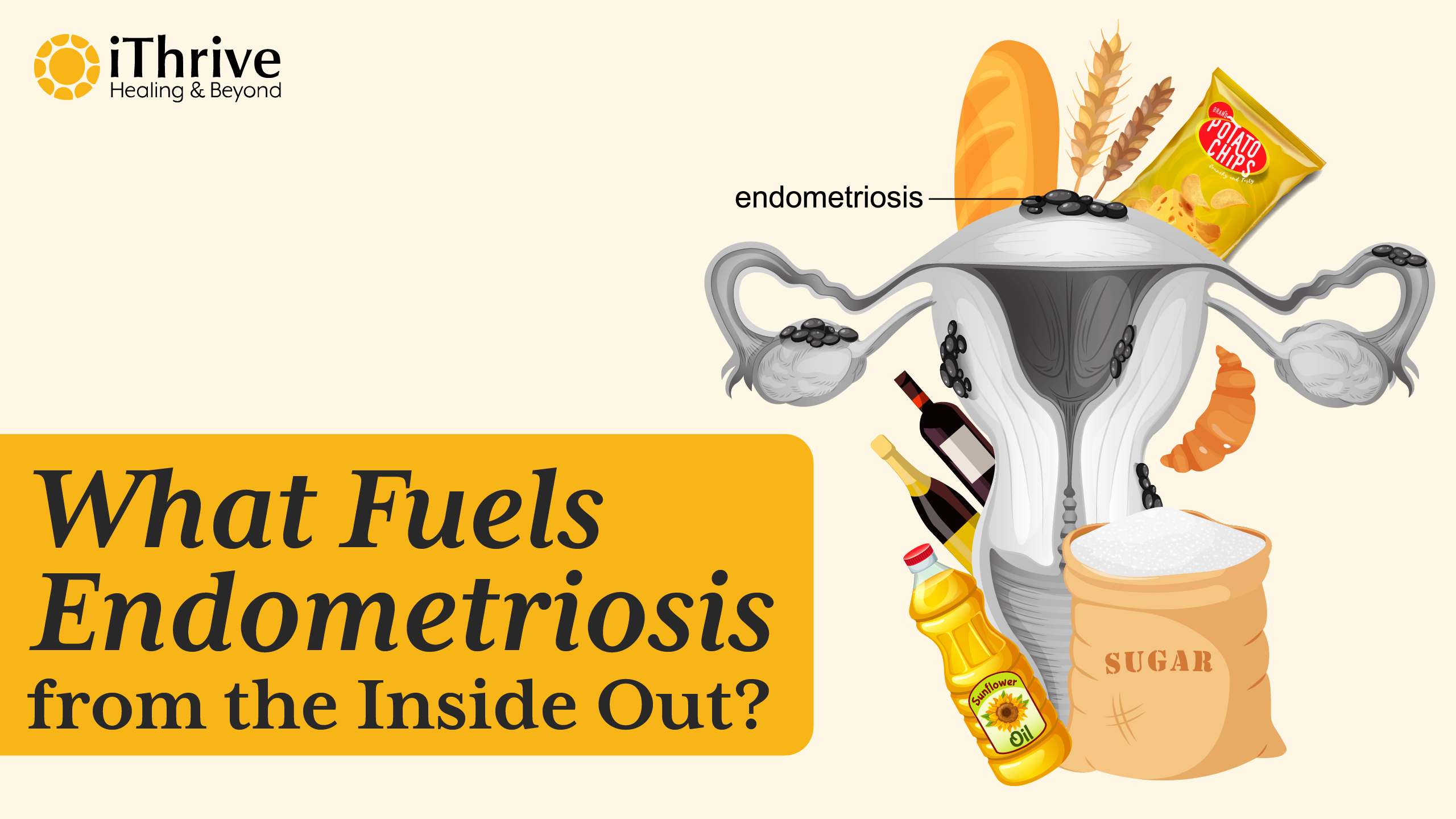People who have PCOS (Polycystic Ovary Syndrome) often have problems like irregular periods, weight gain, acne, hair loss, or even trouble getting pregnant. There is another part of PCOS that isn't talked about as much, though, and it can be very painful to face: a loss of sexual drive.
You are not the only one who has ever thought why your sex drive seems to have gone away or why being close to someone feels more like work than a pleasure. Another important thing is that you're not broken. Let's look at this together.
PCOS and Libido Connection
Your sex drive isn't just about how you feel. It's a fine line between hormones, feelings, and health in general. PCOS throws off this balance in several ways:
Hormonal Imbalances
- Testosterone levels are often higher in women with PCOS. While testosterone is usually associated with sex drive, in PCOS, this excess comes with problems like acne, hirsutism (unwanted facial/body hair), and hair thinning. These physical changes can lower self-confidence, which in turn impacts desire.
- Estrogen and progesterone imbalances disrupt the menstrual cycle and affect vaginal lubrication, making intimacy uncomfortable or even painful.
Insulin Resistance
A lot of women who have PCOS are insulin-resistant in some way. This not only makes you more likely to get diabetes, but it also changes your energy, mood, and how your hormones work. Being tired all the time and having sugar crashes don't leave much time for closeness.
Weight Gain and Body Image
A lot of people with PCOS gain weight that won't go away, mostly around the stomach. Desire naturally takes a back seat when you don't feel good in your body.
Stress and Mental Health
People with PCOS are more likely to have anxiety, sadness, and mood swings. When you add in the pain of having acne, periods that don't work right, or trouble getting pregnant, worry kills your libido without you even realizing it.
What’s Really Behind PCOS? Looking Beyond Symptoms

If you're thinking, "Why me? The real question is, "Why do I have PCOS in the first place?" If you don't know what's causing it, you'll only be able to treat the signs; the real problem will stay hidden.
These are some of the most common reasons why people get PCOS:
Insulin Resistance
This is a big reason why PCOS happens. When insulin doesn't work right on your cells, your body makes more of it. The ovaries then make more testosterone because of high insulin, which messes up ovulation, periods, and of course, your libido.
Chronic Inflammation
Hormonal chaos gets worse when there is inflammation, which can be caused by an unhealthy diet, gut issues, toxins, poor lifestyle or even hidden infections. It can make you tired, make insulin resistance worse, and cause mood swings, all of which make you less desire to do things.
Nutrient Deficiencies
A lot of women with PCOS are deficient in vitamin D, magnesium, omega-3s, zinc or B vitamins. Your body has a hard time keeping hormones, energy, and mood in check without these.
Gut Health Issues
A poor gut health doesn't just give you gas or heartburn; it also affect your hormones. Poor gut function makes it harder to control PCOS because it lowers the absorption of nutrients and raises inflammation.
Thyroid Dysfunction
Many women with PCOS also have thyroid imbalances. A sluggish thyroid can make you feel tired, cold flash, and uninterested in intimacy, while also worsening weight gain and mood issues.
Why Root Cause Analysis (RCA) Matters
Most conventional approaches to PCOS focus on symptom control: birth control pills to regulate periods, metformin for insulin resistance, or creams for acne. But none of these truly address why your body is experiencing this shifts in hormone in the first place.
That’s where Root Cause Analysis (RCA) comes in. At iThrive, we use your blood work, check 55+ parameters to dive deep into your biology and uncover the hidden drivers behind your PCOS.
- Is high insulin the main culprit?
- Are nutrient deficiencies making things worse?
- Is inflammation or poor gut health at the center?
- Are your thyroid hormones off balance?
What Can You Do to Bring Back Your Desire?

The good news: once you address the root causes of PCOS, your libido doesn’t just have to stay low. It can return stronger than before, because your body, mind, and hormones are finally aligned. Here are key steps that can help:
1. Balance Blood Sugar and Insulin
- Choose whole, unprocessed foods over refined carbs and sugars. Include proteins and fiber with every meal to keep energy stable and avoid sugar spikes.
- Add healthy fats like avocado, walnuts, and omega-3-rich fish to support hormone production.
- When your insulin stabilizes, your hormones stop being in constant chaos, and your natural sex drive begins to restore.
2. Reduce Inflammation
- Limit inflammatory foods (refined oils, processed snacks, excess dairy, gluten, sugar).
- Increase anti-inflammatory foods like turmeric, fatty fish, and berries.
- Heal your gut with probiotic-rich foods. You can also supplement with iThrive Essentials Probiotics with Prebiotics to keep your gut happy.
- Less inflammation = more energy, better moods, and improved intimacy.
3. Correct Nutrient Deficiencies

- Supplements can play a major role in restoring desire:
- Vitamin D3 + K2 - improves hormone regulation and mood.
- Magnesium - reduces stress, supports better sleep, and helps balance hormones.
- B-Complex - boosts energy and nervous system health.
- Omega-3s (Krill Oil) - lowers inflammation and supports hormonal balance.
4. Support Emotional Health
Stress is one of the biggest libido-killers. Try:
- Daily meditation or breathwork for nervous system calm.
- Therapy or counseling to release emotional burdens.
5. Move Your Body
Regular exercise not only improves insulin sensitivity but also boosts mood-enhancing endorphins and circulation (important for sexual function). Even a brisk walk or strength training 3-4 times a week makes a huge difference.
6. Heal Your Gut
Gut health directly affects hormones. Work on:
- Eating fiber-rich foods for healthy digestion.
- Avoiding antibiotics.
- Adding probiotics and prebiotics for a balanced microbiome.
7. Seek Root-Cause Based Care
Instead of patching symptoms, find the why behind your PCOS through Root Cause Analysis (RCA). Healing is much faster and more sustainable when your protocol is tailored to your body’s exact needs.
We Can Help

PCOS doesn’t have to mean a life with low energy, mood swings, or lost intimacy. Once you begin addressing insulin resistance, inflammation, nutrient deficiencies, gut health, and emotional stress, your body naturally shifts back into balance, and your desire returns as a beautiful byproduct of healing.
At iThrive, we’ve helped hundreds of women with PCOS regain not only their cycles and energy but also their intimacy and confidence. Through RCA and a personalized healing plan, your hormones, mood, and libido can all fall back into sync.
Book your free consultation today to start your journey back, not just to better health, but to feeling truly alive and connected again.
Subscribe to our newsletter and receive a selection of cool articles every week




.png)


.webp)

.jpg)





